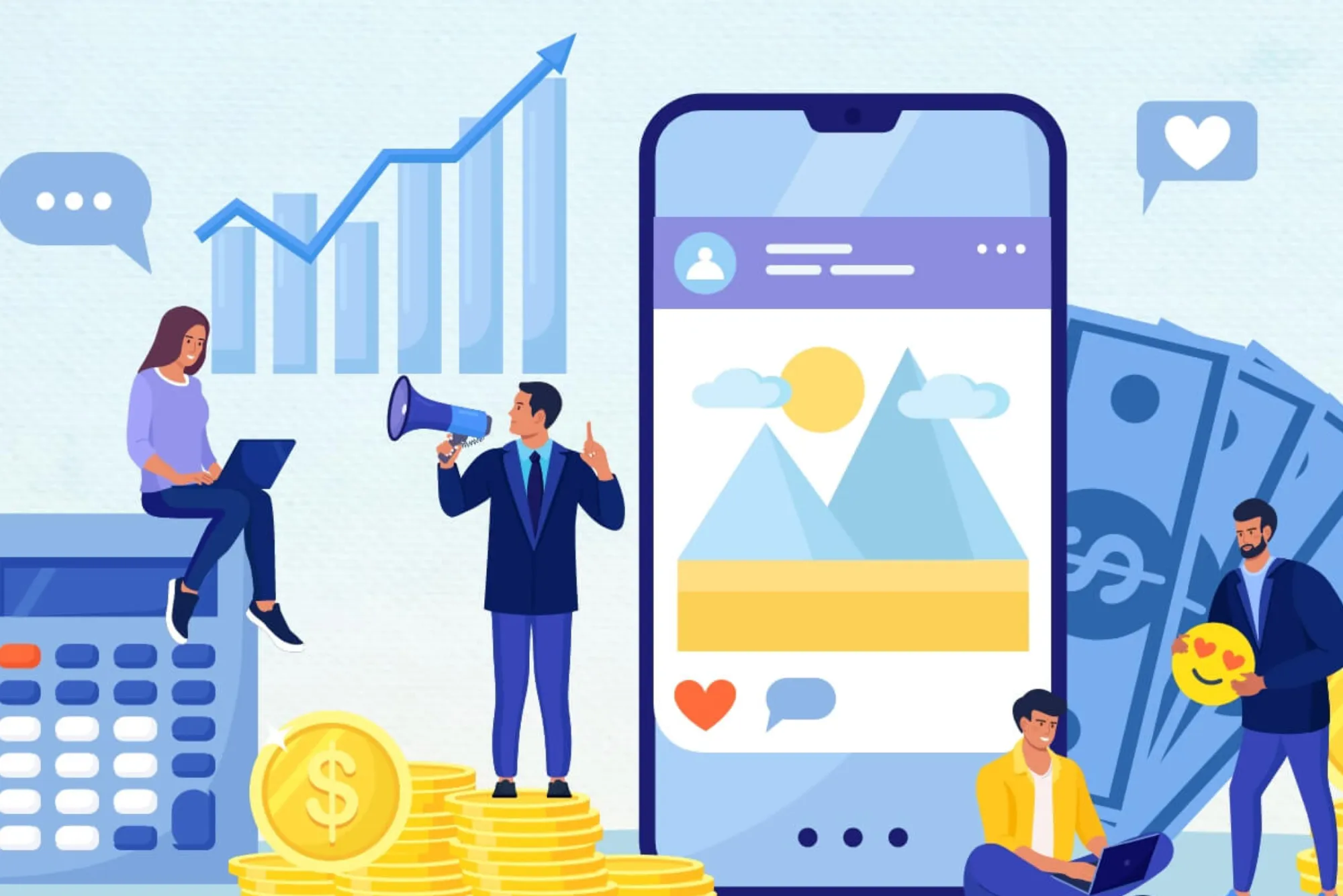Do you think building a great app is all that you need to succeed?
If so, then you might be taking the app business wrong because building a perfect app is one thing.
But turning it into a profitable digital business?
That’s where the true success of your mobile app lies, it’s a whole different game. And for places like Dubai, where the audience is more tech-savvy? It is crowded with consumers who love speed, convenience, and sleek design. This adds up to the importance of a monetization strategy, which needs to be baked in from day one. You can’t just launch the app first and then figure out how to earn from it later.
That’s a clear reason most apps flop.
This post is going to be your go-to guide on how to make money from your app the right way, without annoying your users or losing their trust. This guide is going to help everyone equally, whether you’re a founder, a designer, or just someone curious about how mobile apps can bring in cash flow. We’ll explain everything in the simplest and actionable way possible. friendliest tone possible.
In this article, we’ll learn about five real monetization models that work especially well with the UAE audience and how to use them smartly.
1. Subscriptions: The “Set It and Forget It” Model
This one’s considered to be the Emirates’ favorite one. This method works exceptionally well with niches like wellness, education, content platforms, and exclusive community apps.
Here’s how it works:
You give users a taste of something in the form of limited access or a free trial. The user tests it and gets to know the benefits of it, and then you offer premium features on a monthly or yearly basis.
But why does it work in the UAE?
People here are used to paying for convenience. No matter what services they avail, be it streaming services, gym memberships, or business tools, subscriptions fit perfectly with the lifestyle of fast-paced users who prefer consistency and premium experiences.
Just make sure your value is obvious and immediate. No one wants to subscribe to something that doesn’t do much.
If you’re working with a mobile app development company Dubai, ask them to build subscription logic right into your app’s architecture. This way, it becomes more seamless, secure, and feels native to the user flow.
2. In-App Purchases (IAPs): Micro-Conversions, Big Results
These are small things users buy inside your app, this could include things like bonus content, features, digital items, or tools. It’s a great match for games, learning apps, and productivity tools.
This model works great when:
- The app itself is free to download.
- Users feel the purchases actually improve their experience.
Why it works in the UAE: This is a high-spending, mobile-first population. Especially among Gen Z and millennials, people here are okay with micro-payments as long as they feel fair and add value. Arabic-language games and skill-based learning tools are seeing huge spikes through IAPs.
The key?
Make the users feel like they’re choosing to buy naturally and they are not being forced or hard sold.
3. Freemium: Let Them Try, Then Let Them Upgrade
Freemium simply means “free to use”. But with premium add-ons that unlock more features or content.
It’s great for:
- SaaS-style apps
- Finance tools
- Health and fitness platforms
- Design, productivity, or real estate apps
Why it works in the UAE:
People here love to test things before they commit to them; they want to give it a try before going all in. The freemium model builds trust first and then lets the users explore without a paywall in their face. It’s especially popular among small business owners and creators looking for value-first tools.
To make this work, your app needs a strong free experience and a clear upgrade path that feels worth it.
4. Ads: Use With Caution (and Class)
This one’s tricky. Yes, ads can bring in money, but if they disrupt the experience or show irrelevant content, you’ll lose users fast.
Ads work well in:
- Free entertainment apps
- Community or event apps
- Utility apps with daily use
Why it works (and doesn’t) in the UAE:
The audience here in the UAE doesn’t mind ads until the ads feel useless or irrelevant… Once it’s the case, they run far away from your app. So, you need to keep these ads as relevant as possible and try to avoid unskippable video ads or irrelevant popups. They’re hard to pass.
If you go this route, use smart ad placement and consider opt-in rewards or native ad content that feels less like a disruption and more like part of the app.
Tip to remember:
A trusted team of mobile app developers can help you integrate ads without messing up your app’s speed or design.
5. Marketplace or Commission-Based: Take a Cut of the Action
If your app connects buyers and sellers, service providers, or freelancers, this model is gold.
How it works: You provide the platform, and whenever someone makes a transaction, you take a small cut.
Great for:
- Home services
- Niche delivery apps
- Fitness & coaching platforms
- Booking-based businesses
Why it works in Dubai: The gig economy is growing fast. More people are offering services, side hustles, or niche experiences, and they’re looking for easy platforms to list and book. Plus, trust plays a big role in Dubai, and if your app helps both parties feel safe and seen, people will keep coming back.
Start Monetizing From Day 1 (Not Day 100)
Here’s the biggest mistake most businesses make: They treat monetization like an afterthought.
But your app’s design, features, and even button placements should support your monetization goals right from the beginning.
That means:
- If you want in-app purchases, make them part of the natural flow.
- If you’re running subscriptions, design gated content and payment logic early.
- If you’re going freemium, make the upgrade path smooth and enticing.
And most importantly, make sure your monetization model matches your audience’s behavior.
What Works Best for the UAE Market?
Now, based on the local behavior, here is a breakdown for you to get a clear picture:
- Subscriptions work well with loyalty-driven users and luxury niches.
- IAPs and freemium are a great fit in youth-oriented spaces like gaming, edtech, and social apps.
- Ads are okay in high-volume, free-to-use apps – if done respectfully.
- Commission-based apps are ideal for service-driven platforms and local marketplaces.
So, if you’re building an app for the Dubai or the UAE market in general, work with an expert app development company that understands not just the tech but also the people.
Real monetization isn’t about tricking users into paying, it’s about giving them real value they’re happy to pay for.
Conclusion:
If you’re still not sure about which model fits your idea best, look at your app’s purpose, your users’ daily behavior, and your long-term goals. This helps you understand the exact mindset of your target audience so that you can best align any of these monetization methods with your app. But here is a quick reminder: if you want recurring income? Go with subscriptions. Want viral growth and later monetization? Freemium might be your jam. No matter what you choose, make it make sense for you and them.












